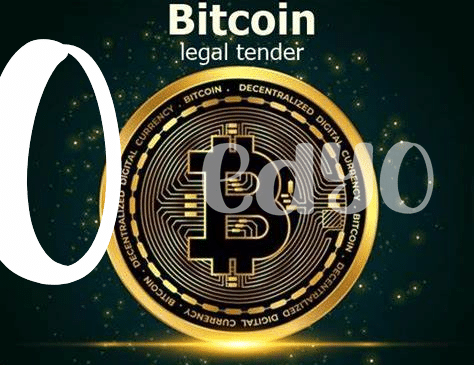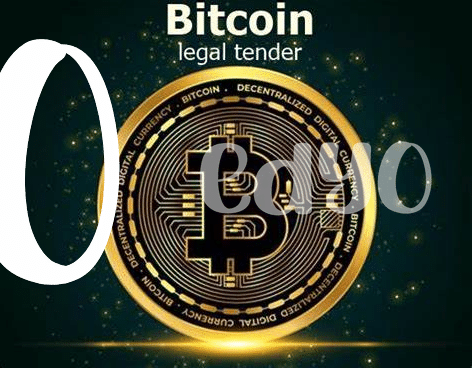What Is Bitcoin? Unpacking the Basics 🌐

Imagine a world where money isn’t controlled by banks or governments, but by lines of complex code on computers spread across the globe 🌐. Welcome to the realm of Bitcoin, a digital currency (or “cryptocurrency”) that operates on this very principle. Unlike traditional money, there are no physical Bitcoins; it’s all about virtual coins saved in digital wallets. Transactions with Bitcoin happen over a network called the blockchain, a secure ledger that records all exchanges across countless computers. This revolutionary approach ensures that no single entity has control, promoting a level of transparency and security unique to Bitcoin. What began as a concept in a 2008 paper by an anonymous individual (or group) known as Satoshi Nakamoto, has grown into a global phenomenon challenging our traditional notions of money 💡⚖️.
Here’s a quick look at the basics:
| Characteristic | Description |
|---|---|
| Digital Nature | Exists solely in digital form, no physical counterpart. |
| Decentralization | Operated by a decentralized network of computers across the globe. |
| Blockchain Technology | A secure and transparent way to record all transactions. |
| Limited Supply | Programmed scarcity with a cap of 21 million coins. |
| Use | Used for online transactions, investments, and as a store of value. |
The Bright Side of Bitcoin as Currency 💡
Imagine a world where sending money to a friend across the globe is as easy as sending a text message, all while keeping your finances under your control. That’s the promise of Bitcoin, a digital currency that operates independently of a central authority. Unlike traditional currencies, Bitcoin isn’t tied to any one country or financial institution, freeing it from the constraints and fees often associated with international money transfers. This potential for seamless, global transactions is just one of the bright spots of using Bitcoin as currency. It opens up new opportunities for businesses to operate on an international scale without the hurdles of currency exchange and transaction fees. Plus, for individuals in countries with unstable currencies, Bitcoin offers a more stable asset to hold their savings. But the benefits don’t stop at convenience and stability. Bitcoin transactions are transparent and can be verified by anyone on the network, which could significantly reduce fraud and corruption. This transparency, coupled with Bitcoin’s security features, sets the stage for a financial ecosystem that’s not only more inclusive but also more trustworthy. For more insights into Bitcoin’s impact beyond financial transactions, consider the implications on global remittance flows, where it empowers migrants by offering a decentralized alternative for sending money back home, as detailed at https://wikicrypto.news/empowering-migrants-bitcoins-influence-on-global-remittance-flows.
Potential Pitfalls of Bitcoin in Everyday Use ⚠️

Imagine you’re at the store, ready to buy your favorite snacks, and you decide to pay with Bitcoin. Sounds cool, right? But it might not be that simple. Think of Bitcoin like a rollercoaster, one moment it’s up, and the next, it’s down. This means if you paid for something with Bitcoin today, it could end up costing you more (or less) than if you had waited until tomorrow. This can be tricky for businesses and customers, making it hard to set fair prices for goods and services.
Now, let’s talk about using Bitcoin everywhere, which isn’t always easy. Not every shop or online store accepts it, limiting where you can spend it. Plus, imagine sending Bitcoins to pay for a coffee and having to wait over an hour for the transaction to go through due to slow confirmation times. That’s a long wait for a coffee! Also, there’s the digital divide. Not everyone has access to the internet or the gadgets needed to use Bitcoin, making it harder for some people to join in on the Bitcoin journey.
Comparing Countries: Who’s Embracing Bitcoin? 🌍

Around the globe, different countries are warming up to Bitcoin in varying degrees, from chilly skepticism to full-on embrace. 🌍 For instance, El Salvador made headlines by becoming the first country to accept Bitcoin as legal tender, a bold move signaling a big thumbs-up to digital currency. On the other hand, some nations remain cautious, weighing the pros and cons before making any commitments. This patchwork of global attitudes offers a fascinating look at how Bitcoin is shaking up traditional financial systems and prompting a rethink of what money can be in the digital age. For a deeper dive into how countries are navigating the Bitcoin wave and its impact on their economies, check out bitcoin adoption rates and the blockchain. This exploration reveals not just who’s leading the charge and who’s on the fence but also paints a picture of a financial future that’s as exciting as it is uncertain. 🚀🔍
How Bitcoin Could Shape Future Economies 🚀
Imagine a world where buying a car, a slice of pizza, or even a house can be as simple as sending an email. This isn’t a far-off dream; it’s a possibility with Bitcoin steering the ship towards new economic horizons. As a digital currency, Bitcoin breaks down traditional financial barriers, offering a universal form of money that could revolutionize how we think about and use currency. Its decentralized nature means no single entity controls it, providing a level of freedom and equality not seen in current financial systems. Moreover, transactions with Bitcoin can be faster and cheaper than traditional banking, making it an attractive option for both businesses and individuals. However, it’s not just about making purchases easier; Bitcoin’s underlying technology, the blockchain, introduces a transparent and secure way of recording transactions. This could lead to a more honest and open economic environment, reducing fraud and corruption. Imagine economies where every transaction is traceable and tamper-proof, where financial inclusivity is a given, and where the power dynamics of traditional banking don’t dictate who can participate and who can’t. Here’s a quick snapshot:
| Feature | Impact on Future Economies |
|---|---|
| Universal Access | Greater financial inclusivity worldwide |
| Decentralization | Reduction in corruption and fraud |
| Blockchain Transparency | Trust and security in transactions |
| Cost Efficiency | Lower transaction fees for both individuals and businesses |
By weaving these elements into the fabric of our economies, Bitcoin doesn’t just change how we spend or save; it reimagines the very essence of economic interaction for generations to come.
Safeguarding Your Wallet: Security Tips 🔐

Imagine keeping a treasure chest in your house; you’d want to ensure it’s locked up tight and hidden away, wouldn’t you? The same goes for your digital treasure trove, especially when it relates to Bitcoin. Securing your digital wallet is like safeguarding the key to your treasure. It involves more than just a strong password. Think of enabling two-factor authentication (2FA) as adding an extra lock on your chest. This method requires not only something you know (your password) but also something you have (like a code sent to your phone) to access your funds. It’s a simple step that adds a significant layer of protection against unwelcome visitors. Furthermore, keeping a cold storage wallet, which is like moving part of your treasure into an unbreakable safe, ensures your digital gold is out of reach from online hackers. 🛡️🔑
Now, diving into the vast ocean of Bitcoin, it’s crucial to swim with knowledge and precautions. As you explore the benefits of utilizing bitcoin trading strategies and the blockchain, remember that the digital world is as vast as it is deep. Educating yourself on common threats and how to avoid them is paramount. Phishing attacks, for instance, are like pirates trying to trick you into handing over the map to your treasure. They might send you emails or messages that look legitimate but are actually attempts to steal your precious Bitcoin. By always verifying the sources and never sharing your private keys or seed phrases – the secret codes that unlock your Bitcoin – you’re essentially drawing a map that leads nowhere but to enhanced security. Stay sharp and treasure your Bitcoin wisely! 🌐💎
